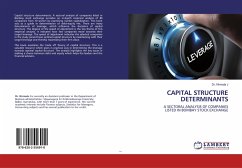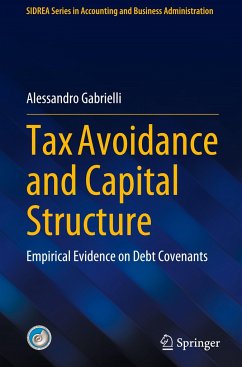
Financial Conservatism, Capital Structure & their impact on Firm Value
A Comparison between UK and Italian firms
Versandkostenfrei!
Versandfertig in 6-10 Tagen
16,99 €
inkl. MwSt.

PAYBACK Punkte
8 °P sammeln!
This book differentiates financially conservative firms from non-conservative firms and investigates how financially conservative and capital structure policies affect their firm values. A firm is said to be financially conservative if it has high cash holdings as a protection against future financial constraints. Using two samples of UK and Italian firms from 1995 to 2013, I have provided evidence that financially conservative firms, even though are cash rich and / or have low levels of debt, do not have the highest firm values due to the effects of tax shield associated with interest on debt...
This book differentiates financially conservative firms from non-conservative firms and investigates how financially conservative and capital structure policies affect their firm values. A firm is said to be financially conservative if it has high cash holdings as a protection against future financial constraints. Using two samples of UK and Italian firms from 1995 to 2013, I have provided evidence that financially conservative firms, even though are cash rich and / or have low levels of debt, do not have the highest firm values due to the effects of tax shield associated with interest on debt. A detailed comparison has been made between active UK and Italian firms to illustrate this.












